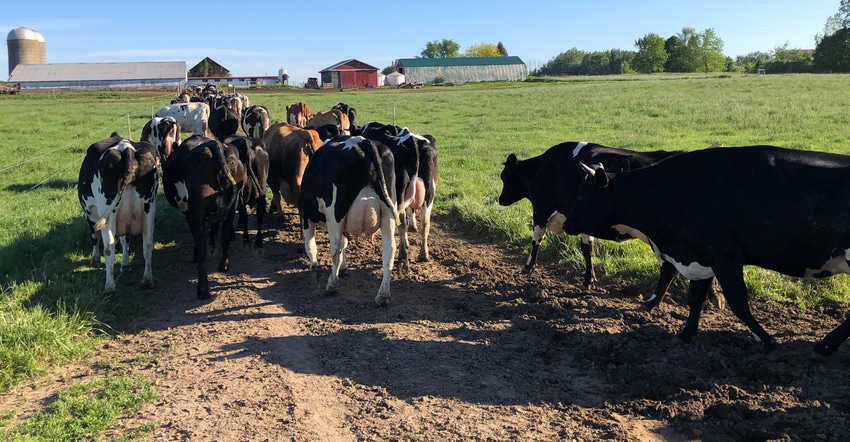
You’ve watched the clips and read about the negative antics of animal rights activists on farms across the country. Those activist stunts do not happen by chance. They are well-planned and usually are shared via live feeds and in recorded videos on social media.
What can you do to protect your farm and management practices from inaccurate information, surprise activist visits and/or undercover employees?
Look around your business and formulate plans to make your farm “YouTube-proof,” advised Abby Kornegay with the Animal Ag Alliance.
“You want your farm to be beyond reproach,” Kornegay said, speaking at World Dairy Expo in Madison, Wis., Oct. 6. She offered an overview of areas to consider: Implementing science-based animal care and environmental policies. Asking for advice for improvement. Training employees on animal handling and care, and having them sign an animal care agreement. Offering employee refresher courses on animal training. And conducting self- and third-party audits of the farm.
Farm security basics
Protecting your farm from uninvited scrutiny begins with basic security, Kornegay noted. You may live in a rural area and trust your neighbors. Seriously, however, consider a daily routine of locking your office and file cabinets. Have adequate lighting, and consider installing an alarm system and a security camera. Post signs around your farm that note restricted areas. Put up “No trespassing” signs.
As you hire employees, use an employment application and ask for references.
“Make sure you call them,” Kornegay added. If something doesn’t seem right, trust your gut and explore it further.
One employee management tip to consider: Have your most senior employees, not new hires, perform animal husbandry chores that involve animal pain, such as dehorning. Also have experienced, trained workers move sick and injured animals.
As much as the ag industry wants to be transparent to consumers, farmers do need to have protocols in place to handle unexpected or unwanted visitors. Ask for credentials or verification of identify and verify their claims by contacting their boss and/or office. Gather as much information as possible about the unexpected visitor — vehicle, license, etc.
Escort visitors at all times, and do not let them wander alone around your farm. Be cautious about information requests. Make sure your employees know your visitor policy and follow it, too.
If you see any suspicious activity, report it to law enforcement immediately. Kornegay also suggested contacting the Animal Ag Alliance to let them know if you have on-farm encounters with activists. The alliance can serve as a resource for information and industry connections.
Connect with law enforcement, media
Be proactive and reach out to local law enforcement and media before an event occurs. Invite them to your farm so they can see your operation and have a basic understanding of what you do. Ensure that everyone is familiar with state and local animal welfare laws.
If talking to media makes you uncomfortable, sign up for the media training available through various farm organizations. Consider engaging on social media so you can tell your own farm’s story. You can help build trust that way, making direct connections with customers and clients.
Ask law enforcement for advice on how to protect yourself, your family, your employees and your business when activists show up. Then take the next step — forming your own crisis communications team. Draw up a list of contacts — law enforcement, state ag organizations, the local FBI field office, a USDA security coordinator officer — that you can notify. When an event happens, gather as much information as possible to share with them. Prepare a draft statement and response materials so you can clearly communicate to media requests with facts.
If a protest takes place at your farm, contact law enforcement immediately. Avoid confrontation and engagement and keep your cool.
“They want you to look defensive or seem like you are hiding something,” Kornegay said. “You are probably being livestreamed and recorded. Do not respond to anything.”
Turn on your camera, and record protestors. Write down vehicle descriptions and license plate numbers. Let law enforcement handle any conversations.
The more thorough the planning, the better prepared you will be for unplanned visitors.
For online information about the Animal Ag Alliance, visit animalagalliance.org.
About the Author(s)
You May Also Like






